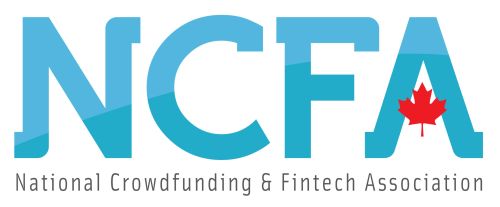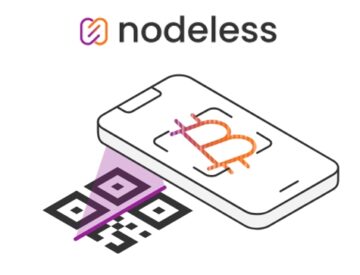News | Jan 23, 2024
A Federal Court in Canada has ruled that the Liberal government’s invocation of the Emergencies Act in early 2022 to disperse convoy protesters was unreasonable
The Emergencies Act, invoked for the first time in Canadian history, granted law enforcement extraordinary powers to remove and arrest protesters, and allowed the government to freeze the finances of those connected to the protests. This decision was made in response to protests that clogged key arteries in Ottawa and blocked border points, primarily driven by dissatisfaction with the government’s COVID-19 policies, including vaccine requirements.
The Federal Court’s Ruling and Implications
Federal Court Justice Richard Mosley stated that the situation created by the protests did not meet the threshold of a national emergency as defined by the Canadian Security Intelligence Service. He emphasized that the invocation of the Emergencies Act was “unreasonable and ultra vires,” a Latin term meaning beyond the powers of the law. Mosley’s decision also highlighted that the economic orders issued under the Act infringed on protesters’ Charter rights, particularly concerning freedom of expression and unreasonable search and seizure.
Federal Court Justice Richard Mosley:
I conclude that there was no national emergency justifying the invocation of the Emergencies Act and the decision to do so was therefore unreasonable and ultra vires. “Ultra vires” is a Latin term used by courts to refer to actions beyond the scope of the law.
See: Emergencies Act Post-Mortem: Crypto execs in Ottawa discuss Digital Assets
This ruling and the subsequent appeal highlight the ongoing tension between government authority and individual rights. Businesses, particularly those operating in sectors sensitive to national security and public order, must navigate the legal landscape. The decision also underscores the importance of transparency and justification in government actions, especially when they infringe on civil liberties.
You may also recall that when the Canadian federal government invoked the Emergencies Act to address disruptions in Ottawa, they extended anti-money laundering and anti-terrorist financing (AML/ATF) obligations to donation crowdfunding platforms and certain payment service providers temporarily and without prior notice. Then following the revocation of the Emergency Economic Measures Order on February 23, 2022, the government announced plans to permanently implement these AML/ATF requirements for donation crowdfunding. Consequently, new regulatory amendments now mandate AML/ATF registration, reporting, and compliance for donation crowdfunding services and some payment service providers in Canada, expanding the scope of regulation that already included equity/investment and loan crowdfunding platforms. For more details, see the official publication at Canada Gazette.
See: NCFA Response to FINTRAC’s ‘Knee Jerk’ Regulations Requiring Donation Crowdfunding Platforms to Register and Comply with AML/ATF Legislation
NCFA Canada still believes and we quote: “In summary, the regulations are ineffective, burdensome, anti-competitive, and damaging to both the domestic donation crowdfunding sector and the Canadian nonprofit/charitable sector. The goal of protecting Canadians from money laundering and terrorism is laudable, but these regulations should be scrapped, and new regulations drafted in full consultation with stakeholders.” – Daryl Hatton, Founder/CEO, FundRazr
Government’s Response
Deputy Prime Minister Chrystia Freeland announced the government’s intention to appeal the decision, emphasizing the gravity of the threats faced by Canada at the time. The government has consistently argued that the measures taken were targeted, proportional, and temporary. This stance is supported by the findings of a mandatory inquiry led by Commissioner Paul Rouleau, which concluded that the government met the high threshold needed to invoke the Emergencies Act.
Justice Minister Arif Virani:
“[Rouleau’s] decision stands at odds with the decision that was rendered today and I think that is important and that also informs our decision to appeal.”
Stay Tuned
As the government appeals this decision, the business community and the public at large will closely watch the evolving legal interpretations and their implications for governance and civil rights in Canada.

 The National Crowdfunding & Fintech Association (NCFA Canada) is a financial innovation ecosystem that provides education, market intelligence, industry stewardship, networking and funding opportunities and services to thousands of community members and works closely with industry, government, partners and affiliates to create a vibrant and innovative fintech and funding industry in Canada. Decentralized and distributed, NCFA is engaged with global stakeholders and helps incubate projects and investment in fintech, alternative finance, crowdfunding, peer-to-peer finance, payments, digital assets and tokens, artificial intelligence, blockchain, cryptocurrency, regtech, and insurtech sectors. Join Canada’s Fintech & Funding Community today FREE! Or become a contributing member and get perks. For more information, please visit: www.ncfacanada.org
The National Crowdfunding & Fintech Association (NCFA Canada) is a financial innovation ecosystem that provides education, market intelligence, industry stewardship, networking and funding opportunities and services to thousands of community members and works closely with industry, government, partners and affiliates to create a vibrant and innovative fintech and funding industry in Canada. Decentralized and distributed, NCFA is engaged with global stakeholders and helps incubate projects and investment in fintech, alternative finance, crowdfunding, peer-to-peer finance, payments, digital assets and tokens, artificial intelligence, blockchain, cryptocurrency, regtech, and insurtech sectors. Join Canada’s Fintech & Funding Community today FREE! Or become a contributing member and get perks. For more information, please visit: www.ncfacanada.org
Related Posts
- SEO Powered Content & PR Distribution. Get Amplified Today.
- PlatoData.Network Vertical Generative Ai. Empower Yourself. Access Here.
- PlatoAiStream. Web3 Intelligence. Knowledge Amplified. Access Here.
- PlatoESG. Carbon, CleanTech, Energy, Environment, Solar, Waste Management. Access Here.
- PlatoHealth. Biotech and Clinical Trials Intelligence. Access Here.
- Source: https://ncfacanada.org/court-rules-govts-use-of-emergencies-act-unjustified/
- :has
- :is
- :not
- 150
- 200
- 2018
- 2022
- 23
- 300
- a
- Accounts
- Act
- actions
- address
- affiliates
- already
- also
- alternative
- alternative finance
- amendments
- and
- announced
- anti-money laundering
- appeal
- appeals
- ARE
- argued
- arrest
- artificial
- artificial intelligence
- AS
- Assets
- At
- authority
- BE
- become
- believes
- between
- Beyond
- blockchain
- blocked
- border
- both
- business
- but
- by
- cache
- Canada
- Canadian
- Canadians
- cease
- certain
- civil
- civil liberties
- Civil Rights
- closely
- commissioner
- community
- compliance
- comply
- concerning
- conclude
- connected
- Consequently
- consistently
- consultation
- Convoy
- Court
- Courts
- COVID-19
- create
- created
- Crowdfunding
- crowdfunding platforms
- crypto
- cryptocurrency
- Cryptocurrency Exchanges
- damaging
- decentralized
- decision
- defined
- details
- DID
- digital
- Digital Assets
- discuss
- disruptions
- distributed
- do
- Domestic
- donation
- drafted
- driven
- Early
- Economic
- ecosystem
- Education
- emergency
- emphasized
- emphasizing
- enforcement
- engaged
- especially
- Ether (ETH)
- evolving
- Exchanges
- Execs
- expanding
- expression
- extraordinary
- faced
- February
- Federal
- Federal government
- finance
- financial
- financial innovation
- financing
- findings
- fintech
- First
- first time
- following
- For
- Freedom
- Freeze
- from
- full
- funding
- funding opportunities
- get
- Global
- goal
- governance
- Government
- Govt
- granted
- gravity
- he
- helps
- High
- Highlighted
- history
- HTML
- http
- HTTPS
- i
- image
- implement
- implications
- importance
- important
- in
- included
- Including
- individual
- industry
- information
- informs
- Innovation
- innovative
- inquiry
- Insurtech
- Intelligence
- Intention
- investment
- invoked
- Issued
- Jan
- jpg
- Justice
- Key
- large
- Latin
- Laundering
- Law
- law enforcement
- Led
- Legal
- Legislation
- loan
- made
- mandate
- mandatory
- Market
- max-width
- May..
- meaning
- measures
- Meet
- member
- Members
- met
- minister
- money
- Money Laundering
- more
- must
- National
- national security
- Navigate
- needed
- networking
- New
- no
- Notice..
- now
- obligations
- Odds
- of
- official
- on
- ongoing
- operating
- opportunities
- or
- order
- orders
- Ottawa
- our
- particularly
- partners
- Paul
- payment
- payments
- peer to peer
- perks
- permanently
- plans
- Platforms
- plato
- Plato Data Intelligence
- PlatoData
- please
- points
- policies
- powers
- primarily
- Prime
- prime minister
- Prior
- projects
- protecting
- Protests
- providers
- provides
- public
- Publication
- quote
- refer
- register
- Registration
- Regtech
- Regulation
- regulations
- regulations Are
- regulatory
- remove
- rendered
- Reporting
- Requirements
- response
- Richard
- rights
- ruled
- rules
- ruling
- s
- says
- scales
- scope
- Search
- sector
- Sectors
- security
- see
- Seizure
- sensitive
- service
- service providers
- Services
- should
- situation
- So
- some
- stakeholders
- stance
- stands
- stated
- Stewardship
- Still
- subsequent
- SUMMARY
- Supported
- taken
- targeted
- temporary
- term
- Terrorism
- that
- The
- the Law
- their
- then
- There.
- therefore
- These
- they
- Think
- this
- those
- thousands
- threats
- threshold
- time
- to
- today
- Tokens
- Transparency
- Ultra
- under
- underscores
- unreasonable
- use
- used
- Vaccine
- vibrant
- Visit
- was
- Watch
- we
- were
- when
- which
- will
- with
- without
- works
- zephyrnet












